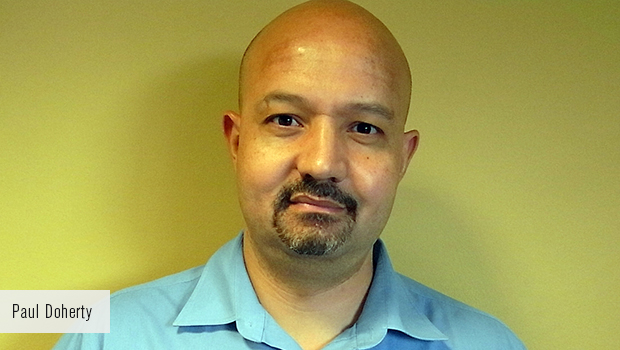Paul’s fool’s guide to investing in a stock market
By Paul Doherty
When I introduce myself as a stock broker at social gatherings or other such networking events, I am often met with a reaction of “Oh…I prefer to invest in unit trusts or a retirement annuity…they are so much safer.”
I find this an interesting reaction to the world of investment. The person in question is normally conservative in terms of their investments and does not want to risk losing money. Fair enough. However, when we probe a little further, we discover that the person is not fully informed of where their hard earned funds end up.
Recently I was reminded of this reality. A good client of mine who has an active portfolio with Thebe Stockbroking stated that he was rather pleased with his financial planning. He is of the opinion that he has a higher risk investment portfolio with Thebe Stockbroking, but he has balanced it with some unit trusts to diversify or reduce risk.
I asked him to show me some of his unit trust statements so I could see where he was investing and the results were interesting to say the least.
When looking at the statements, I could see the client had been investing in the Allan Gray Balanced Fund and the Old Mutual Investors Fund. Let’s take a look at the composition of these unit trusts.
The Allan Gray Fund has a 50% exposure to domestic shares and a 26% exposure to foreign unit trusts (which have a considerable exposure to shares) while the Old Mutual Fund is 99% shares with a small exposure to cash and domestic unit trusts. The money the client is investing, especially with regards to Old Mutual, is ending up in the same arena to that which Thebe Stockbroking operates in. So while he thought he was balancing his risk, in reality he has been taking on more risk.
The above example highlights the common misconception regarding the relative risk between investment products. Just because you have a long-term insurance industry product such as a retirement annuity, endowment or even a unit trust, it does not necessarily mean that you are investing in ‘safer’ products.
Further to the above, all things being equal, the long-term insurance product will generally under perform the returns from an account with a stock broking firm as the associated management costs are lower. For example, there are no ongoing commissions by investing directly in the stock market.
At this juncture, it is important to note that I am not saying that a share portfolio is better than institutional investment products in all respects. Not at all! I believe that proper financial planning will result in an individual getting life, dread and disability cover as well as a retirement annuity. However, I am saying that once the basics are taken care of, I would consider opening a brokerage account with a stock broking firm in order to invest any further discretionary funds. The funds are being invested in a similar arena, with a higher rate of return.
If you still feel investing in shares carries risk you would rather not bear, the Johannesburg Stock Exchange has more to it than meets the eye. Aside from the purchase and sale of shares, the JSE also facilitates trade in:-
Bonds
A Bond is a debt instrument that offers a regular payment to the investor which consists of a coupon payment (interest payment) of fixed value semi- or bi-annually, with the promise of a degree of capital protection.
Debentures
A Debenture is a type of debt instrument, similar to a bond, that is not secured by physical assets or collateral. Debentures are documented in an indenture, which is a written agreement between the issuer and holder and sets out specific rights as to repayment of capital and interest. These can be held to maturity or traded on the secondary market.
Depositary Receipts
A Depositary Receipt (DR) is a type of negotiable (transferable) financial security traded on a local stock exchange, representing a security, usually in the form of equity that is issued by a foreign publicly listed company. Depository Receipts allow investors to hold shares in equity of other countries.
Exchange Traded Funds
Exchange Traded Funds (ETFs) are listed investment products that track the performance of a basket of shares, bonds or commodities. An example of this would be the Satrix top 40 product.
I hope though that this article has given you pause for thought. If you would like to discuss these ideas further, please feel free to give myself or my colleagues at Thebe Stockbroking a call.
Paul is a regional manager for Thebe Stockbroking in KwaZulu-Natal.
Contacts: 031 566 5908 OR paul.doherty@thebestockbroking.co.za


